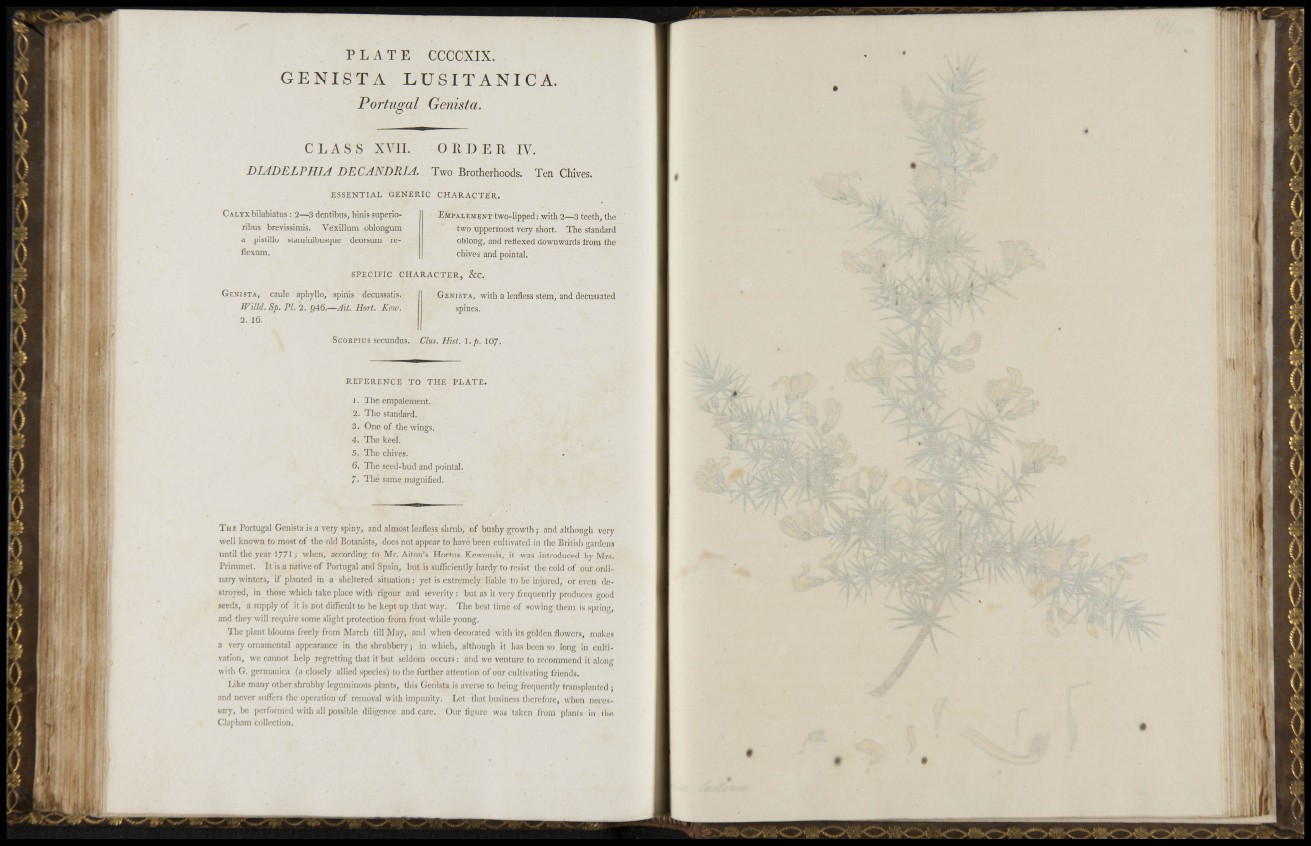
$r /
P L A T E CC C C X I X .
G E N I S T A LÜSITANICA.
Portugal Genista.
C L A S S XVIL O R D E R IV.
DIADELPHIJ DECANDRTA. Two Brotherhoods. Ten Chives.
ESSENTIAL GENErUC CHARACTER.
Ca l y x b i l a b i a t u s : 2—3 dentibns, binis superioribus
brevissimis. Vexillutn oblongum
a pistillo staminibusque deorsum reflexum.
E m p a l e m e n t two-lipped: with 2—3 teeth, the
two uppermost very short. The standard
oblong, and reflexed downwards from the
chives and pointal.
SPECIFIC CHARACTER, &C.
G e n i s t a , caule aphyllo, spinis decussatis.
G e n i s t a , with a leafless stem, and decussated
WilM. Sp. PI. 2. g46.—Ait. Hort. Kew.
2 . 16.
spines.
S c o i i n u s secundus. Chis. Hist. I. p. 107.
REFERENCE TO THE PLATE.
1. The empalement.
2. The standard.
3 . One of the wings,
4. The keel.
5. The chives.
6 . The seed-bud and pointal.
7. The same magnified.
T h e Portugal Genista is a very spiny, and almost leafless shrub, of bushy growth ; and although very
well known to most of the old Botanists, does not appear to have been cultivated in llie British gardens
until the year 1/71 ; when, according to Mr. Aiton'.s Hortus Kewen.sis, it was introduced by JVIrs.
Primmet, It is a native of Portugal and Spain, but is sufficienlly hardy to resist llie cold of our ordinary
winters, if planted in a sheltered situation: yet is extremely liable fo be injured, or even destroyed,
in those which take place with rigour arid severity: but as it very fieijuenlly produces good
seeds, a supply of it is not difficult to be kept up that way. The best time of sowing them is spring,
and they will require some slight protection from frost whi l e young.
I ' h e plant blooms freely f rom March till May, and when decorated with its golden flowers, makes
a very ornamental appearance in the shrubbery; in which, although it has been so long in cullivation,
we cannot help regretting that it but seldom occurs: and we venture to recommend it along
with G. germanica (a closely allied species) to the further attention of our cultivating friends.
lyike many other shrubby leguminous plants, this Genisia is averse lo lieing fre(|uenlly transplanted ;
and never suffers the operation of removal wi(h im|i\inity. ÍA \ thai business therefore, when necessary,
be performed with all possible diligence and care. Our figure was taken from plants in Ihe
Clapham collection.
I ; .-,1 !
•1 •
- Í
(
1
li
i
i